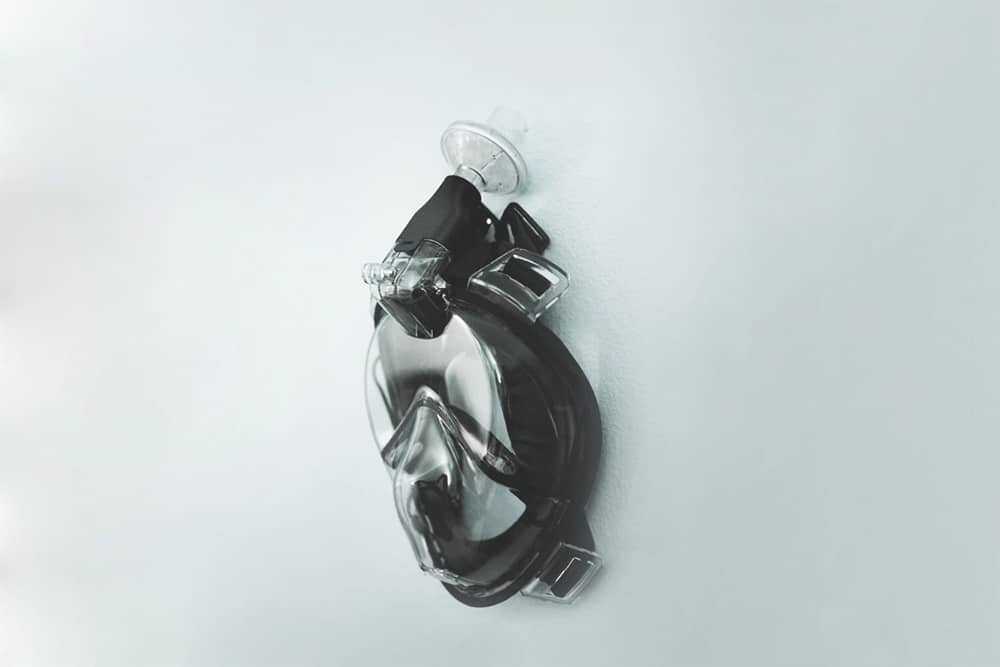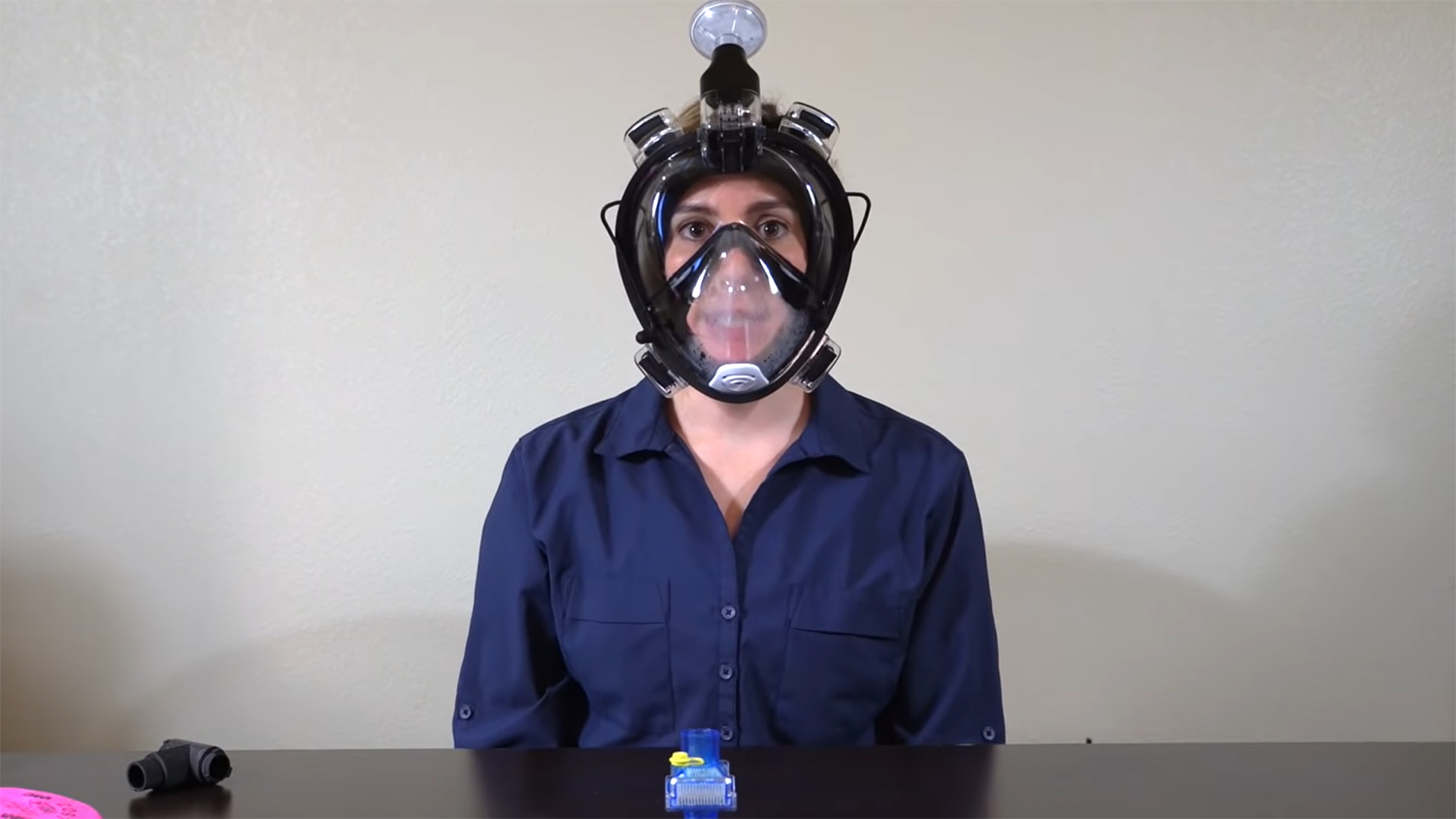PPEs, including face masks and face shields, are something that is urgently needed by healthcare workers to treat COVID-19 patients. Therefore people around the world are now participating in developing alternative solutions to meet the current demands for PPE.
One of them is biotechnology professor Manu Prakash from Stanford University, who has created a reusable face mask from repurposed snorkeling mask for healthcare providers. Dubbed the Pneumask, the innovative device combines a modified off-the-shelf snorkeling mask with a custom (3D-printed) adapter on the ventilation port and medical-grade filter/filter cartridge. It will help medical workers breathe more safely filtered air around patients with COVID-19.

The snorkeling mask has a ventilation port consisting of 1 inhale, and two exhale channels located at the top of the mask. With the help of a custom adapter, a breathing circuit filter can be attached to this port, therefore filtering the incoming air into the mask. One end of this adapter that interfaces with the mask will slightly vary with the different brands or make of the mask. In most models, there is an additional exhale port toward the mouth or chin area, which can be blocked by either inverting or permanently blocking it, when it’s used in a sterile environment.
This Pneumask has been tested by Prakash and his team and sent to the FDA, which quickly approved this tool as a face shield or surgical mask, but not as a respirator. The decision was made so that they can ship the masks to the healthcare workers as soon as possible, as clearing the device as a respirator would require more time.
Read more: Snorkeling masks are turned into emergency ventilators
What’s more important is this PPE can be reused and does not need to be thrown away. The user only needs to sterilize it and pass it to other medical professionals who need them.
Prakash and his team have so far created and distributed 1,500 masks for free to medical workers across five states in the U.S. They hope to ship another 7,000 in the coming weeks. Now, the team aims to engage a coalition of partners to bring 50,000 Pneumasks to front-line healthcare workers in an equitable manner.
